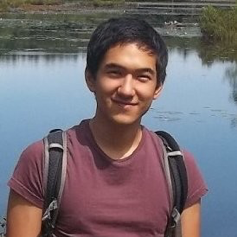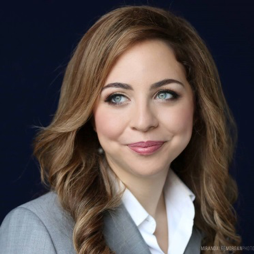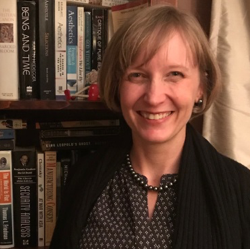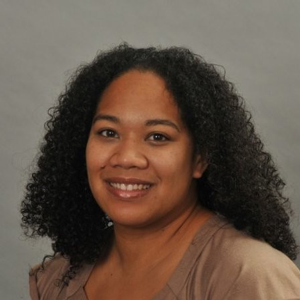Below are brief testimonials from a few of the many Department of Philosophy alums who have gone on to careers in business, describing in their own words how studying philosophy at the University of Chicago has shaped their careers and day-to-day work.
Madeline Busse, AI Software Engineer, PMG Worldwide (BA 2025)
UChicago’s Department of Philosophy Department is a very special place – its courses and staff taught me how to engage with complex arguments and articulate essential human problems. I double majored in philosophy and computer science, and always wished more of my peers pursued a similar educational path; both disciplines are rooted in logic, yet inform each other in crucial ways. Now, as a software engineer, the need for philosophically educated individuals is even more apparent to me. As the technology field experiences rapid advances in AI that pose existential changes to all engineers and businesses, few individuals around me are able to recognize the ethical and technological nuances of AI. My philosophy education at UChicago equipped me to be a leader in the technology space, both by strengthening my logical foundation and giving me practice debating humanity’s most pressing questions.
Hannah Kostuch, Quality Management, Epic Systems Corporation (BA 2018)

I test software at Epic, a health IT company (they make MyChart, among other things). Testing well requires one to understand the whole and the pieces thereof, and how they fit together so that you can utilize your time and effort well to find issues. It also requires clear communication with the developer, to both ask questions and to document the issues you find. Those are skills I refined during my studies of philosophy, and they serve me well in my work testing software.
Jessica Adepoju, Business Analyst, Groupon (BA 2014)

Studying philosophy at the University of Chicago has been an important part of my business career both explicitly and implicitly. As a strategy consultant and later as a business analyst at Groupon, courses such as Logic gave me an early edge when solving the complex types of "if-then" problems faced within data science. The ability to succinctly communicate your perspective and arguments is critical for professionals and is a skill I refined as a philosophy student. Perhaps most importantly, studying philosophy trains you to constantly seek out the underlying motivations and perspectives of both yourself and others—this ability is critical to one's success and fulfillment in any career, business-focused or otherwise.
Dandelion Mané, Software Engineer, Google Brain (BA 2013)

Studying philosophy at UChicago gave me the flexibility to pursue a cross-disciplinary education, spanning epistemology, economics, and computer science. That flexibility was essential in giving me a broad base of skills and perspectives to start my professional life. Also, it surrounded me with deeply thoughtful humans that gave me a richer perspective on what makes for a successful, meaningful life.
William Sims, Consultant, Accenture Strategy (BA 2013)
As a business strategy consultant, it is my job to help clients think analytically about their company's challenges. Too often, these challenges are caused by what could broadly be considered philosophical problems—unchallenged assumptions, ambiguous definitions, and vague frameworks of thought. My philosophical education at UChicago not only taught me how to identify these issues, but how to use rigorous logic and convincing argumentation to solve them.
Nathana Sharma, Program Director, Faculty Affairs & Principal Faculty, Singularity University (BA 2009)

Studying philosophy has given me a first-rate foundation to be a lifelong learner. In a world of constantly evolving technologies and systems, the ability to learn and re-learn is crucial. Philosophy has taught me to break problems down into fundamentals and to be courageous in exploring new ideas and opportunities.
Rhaina Borthwick, Senior Manager, Content Systems, Sallie Mae (BA 2000)

Philosophy studies at UChicago gave me a strong foundation in logic, which helps me feel comfortable with computer programming languages and systems and their similarly logical rules. I learned the value of not just theory but its evolution, which helps me today when considering technical systems--the decision needed now should be informed by the original intention of the program, adjustments made over time, and how it would be most useful in the future. This orientation, along with the training that UChicago provided in rigorous critical analysis, help me bring value when planning and maintaining technology systems and working with a team to discuss and solve problems.
Chara Gafford, President/CEO, urbanCHEF, Inc. (BA 1997)

The culinary world invites philosophical thought in every aspect of the industry. Political philosophy informs hiring decisions such as who has the right to work. Ecological thought guides the sourcing of ingredients. What balance of hedonism and ascetism will govern what we serve? What degree of responsibility does the culinary professional have for the dietary health of the client? Aesthetics, social theory, and ethics make daily appearances. The discipline and experience of thinking philosophically is invaluable in navigating the industry. For the philosophically inclined the professional kitchen can be an intense laboratory for putting theory into practice. Certainly, the study of philosophy is no requirement for entry into the culinary world, but it has helped guide my approach and provided context, focus, and meaning to my work.
